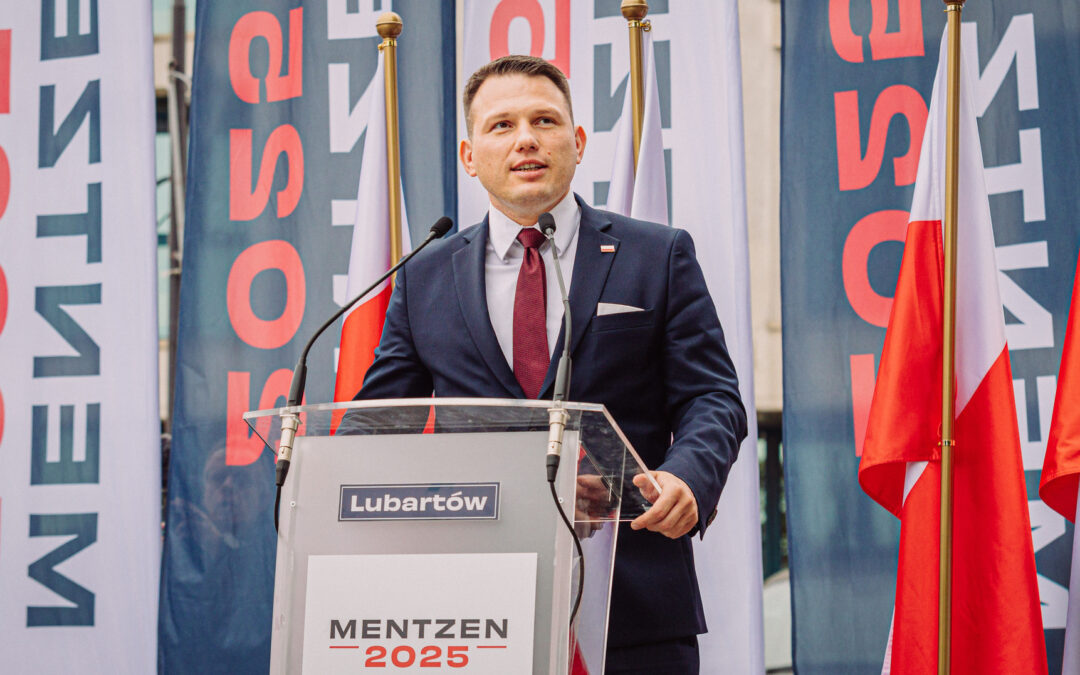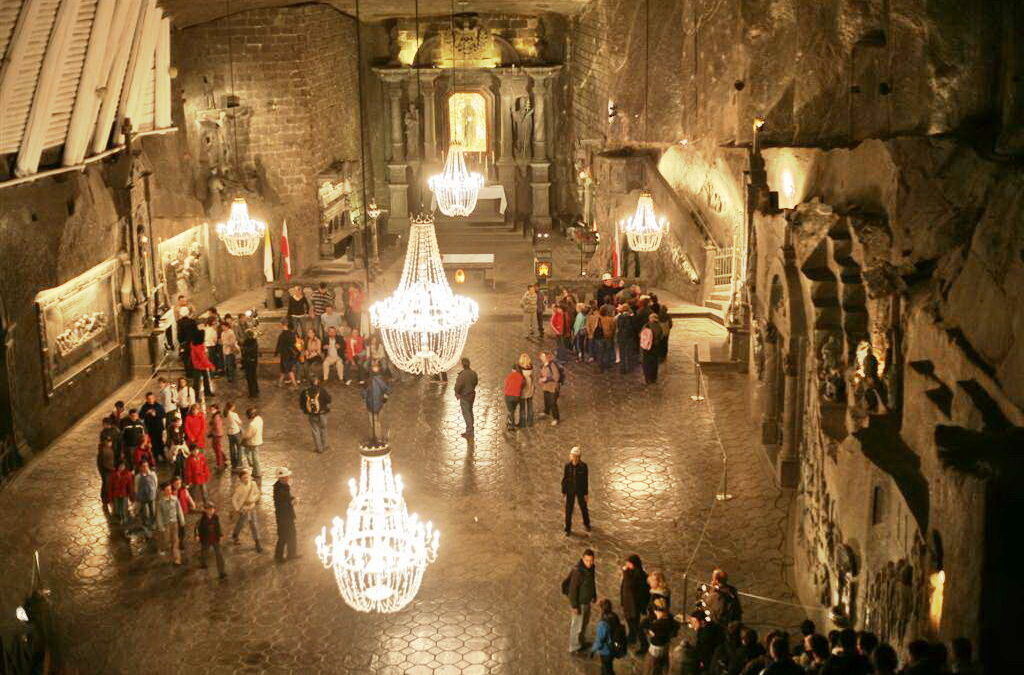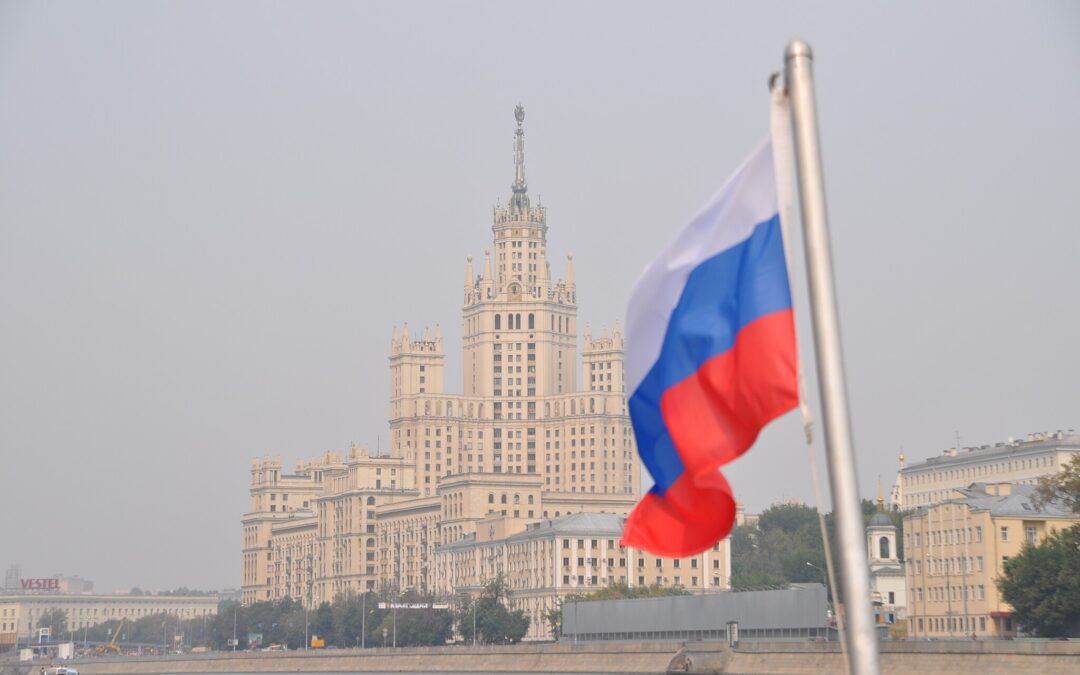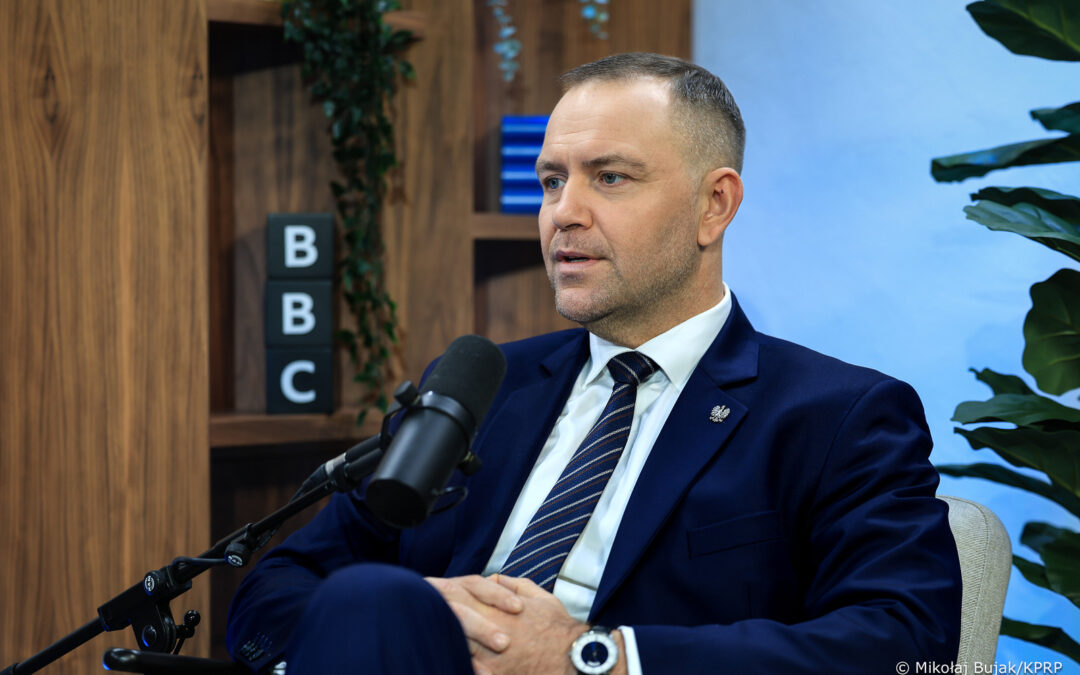Keep our news free from ads and paywalls by making a donation to support our work!

Notes from Poland is run by a small editorial team and is published by an independent, non-profit foundation that is funded through donations from our readers. We cannot do what we do without your support.
By Aleks Szczerbiak
A radical-right free-market third-party challenger has transformed a presidential election that most commentators assumed would be a two-horse race.
Without a government record to defend, he has challenged the duopoly that has dominated Polish politics. But he may have peaked too soon and his support is drawn disproportionately from younger Poles, a fickle demographic who are the least likely to turn out and vote.
A decisive third-party challenger?
This summer, Poland will hold a crucial presidential election, with the first round of voting scheduled for 18 May and a second round run-off a fortnight later between the top two candidates if none secures more than 50%.
In December 2023, a coalition government led by Donald Tusk, leader of the liberal-centrist Civic Platform (PO), which once again became Poland’s main governing party, took office following eight years of rule by the right-wing Law and Justice (PiS) party.
However, the Tusk government has had to “cohabit” with PiS-aligned President Andrzej Duda and lacks the three-fifths parliamentary majority required to overturn his legislative veto. This means that the presidential election will have huge implications for whether the ruling coalition can govern effectively during the remainder of its term of office, which is set to run until autumn 2027.
President @AndrzejDuda has used the final New Year’s Day speech of his presidency to criticise Prime Minister @donaldtusk's government, accusing it of “causing chaos”, “deepening divisions” and “weakening Polish democracy” https://t.co/kD8X0BKrDN
— Notes from Poland 🇵🇱 (@notesfrompoland) January 2, 2025
The two frontrunners are: PO deputy leader and Warsaw mayor Rafał Trzaskowski, who lost narrowly to Duda in 2020; and PiS-backed head of the Institute of National Remembrance (IPN), Karol Nawrocki.
However, the third-placed challenger could have a decisive impact on the result depending on how their votes transfer in the second round. At the moment, this “dark horse” is the charismatic young entrepreneur Sławomir Mentzen, candidate of the radical-right free-market Confederation (Konfederacja) grouping.
Confederation is a political conglomerate that made its breakthrough in the 2019 parliamentary election, securing 6.8% of the vote. In the June-July 2020 presidential election, its candidate, Krzysztof Bosak, finished fourth, again with 6.8%.
Confederation secured a disappointing 7.2% in the autumn 2023 parliamentary election; it had been polling twice that level of support at one point. However, the grouping achieved its best-ever result in last June’s European Parliament (EP) election, surging to third place with 12.1%.
Far-right candidate @SlawomirMentzen's rise in the polls has turned Poland's presidential election into a three-horse race
Mentzen has managed to detoxify his party and has benefited from other candidates mainstreaming its positions, writes @danieltilles1 https://t.co/Ql9LihJ7tu
— Notes from Poland 🇵🇱 (@notesfrompoland) February 28, 2025
Confederation started as a fairly random collection of peripheral right-wing groupings and individuals, but today comprises two main parties: the free market New Hope (Nowa Nadzieja), led by Mentzen, and the nationalist National Movement (Ruch Narodowy), led by Bosak.
While there are undoubtedly behind-the-scenes tensions between its component parties and leaders, Mentzen and Bosak have communicated its radical programme in a measured and reasonable way, and reshaped the grouping into a far more coherent and professional organisation.
Catching the spirit of the times?
Indeed, not only does Confederation appear to have established itself as the third force in Polish politics – the Politico Europe opinion poll aggregator has the grouping averaging 19% – a surge for Mentzen has transformed a presidential election that most commentators assumed would be a two-horse race.
According to Politico Europe, Mentzen’s support has increased from 11% when he announced his candidacy last November to 18% in March, compared with 23% for Nawrocki and 35% for Trzaskowski.
Mentzen has struck a chord with many voters by playing up his economic credentials as a successful self-made entrepreneur and focusing on the business-friendly, economically laissez-faire aspects of his programme, criticising what he argues are expensive and overly-generous social programmes and promising to simplify, reduce and abolish taxes.
The return to office of US President Donald Trump, whose rhetoric and policies overlap with Confederation’s in many areas, has helped to mainstream a number of its long-standing concerns.
These include: strong criticisms of the liberal political and cultural elites, immigration policies that it says have led to economic and cultural insecurity, and what it argues is the EU’s unrealistic and counter-productive “Green Deal” aimed at reducing carbon emissions.
Indeed, Confederation positions are increasingly reflected in the rhetoric of the two main candidates, but without a government record to defend, Mentzen can easily outflank his main opponents and present himself as more credible on these issues.
"We need to come to an agreement with Putin to end" the war in Ukraine, says far-right presidential candidate Sławomir Mentzen.
He also said that Poles must stop letting Ukraine treat them as "suckers" and demand concessions in return for Poland's support https://t.co/u2IyDqtDyW
— Notes from Poland 🇵🇱 (@notesfrompoland) March 5, 2025
Mentzen has been helped particularly by the fact that Polish attitudes towards the war in Ukraine have shifted towards the positions long espoused by Confederation. While opposing the Russian invasion, Confederation argued that Poland needed to adopt a transactional approach and be more robust in defending its interests when these clashed with Ukraine’s.
The grouping also said that Warsaw had been too generous in providing welfare payments and access to social services to the huge numbers of Ukrainian refugees who fled across the border after the invasion.
Poles still support Ukraine and believe that the two countries have a common strategic interest in weakening Moscow, but also feel that there are economic and historical-cultural issues where the two countries’ interests are different. Many of them believe that Ukraine has been insufficiently grateful for the military, diplomatic and humanitarian support that Warsaw has provided.
A leading candidate in Poland’s presidential election has clashed with a Ukrainian mayor after visiting his city and criticising the presence of a monument to Stepan Bandera, who is seen as a hero by many in Ukraine but regarded as a war criminal in Poland https://t.co/nA9JzMmBcg
— Notes from Poland 🇵🇱 (@notesfrompoland) February 26, 2025
Mentzen is also the most effective utiliser of the internet among Polish politicians and has developed a strong online presence through channels such as TikTok, presenting himself as a self-assured and authoritative financial expert and entrepreneur.
For sure, Mentzen’s image as a youthful social media influencer means that he lacks some of the gravitas that many Poles associate with the presidency. However, he is running a very professional campaign this time, holding large public rallies in several different smaller and medium-sized towns every day, thereby increasing his visibility and credibility by creating the image of a politician “close to the people”.
Seeing off potential challengers
Some commentators assumed that when, in January, Grzegorz Braun – one of Confederation’s more radical leaders with a strong and very loyal grassroots following among its supporters – announced that he would also run for the presidency as an independent, this could lose Mentzen support.
In fact, Braun is only polling around 2%, and his candidacy and subsequent expulsion from Confederation have, if anything, bolstered Mentzen’s efforts to detoxify the grouping’s brand.
Braun was Confederation’s most controversial political figure, achieving international notoriety in December 2023 when he extinguished candles in the Polish parliament building lit to celebrate the Jewish holiday of Hanukkah.
Prosecutors have charged Grzegorz Braun, the far-right MP who attacked a Jewish ceremony in parliament, with the crime of insulting a religious group, which carries a potential prison sentence.
He has also been charged over a number of other incidents https://t.co/oSMecQMEB4
— Notes from Poland 🇵🇱 (@notesfrompoland) April 9, 2024
At one point, it looked like the candidacy of one-time football journalist Krzysztof Stanowski might pose a formidable threat to Mentzen’s pitch to citizens disillusioned with traditional party politics.
Last year, Stanowski launched his “Kanał Zero” YouTube channel with a few relatively unknown journalists, and it has become an extremely popular Polish media outlet. However, Stanowski acknowledged candidly that he has no real intention of winning the election and that his campaign is essentially a mockery of the Polish state.
In the current uncertain geopolitical climate, Poles do not feel inclined to experiment with complete newcomers and, not surprisingly, Stanowski’s support remains stuck at around 2%.
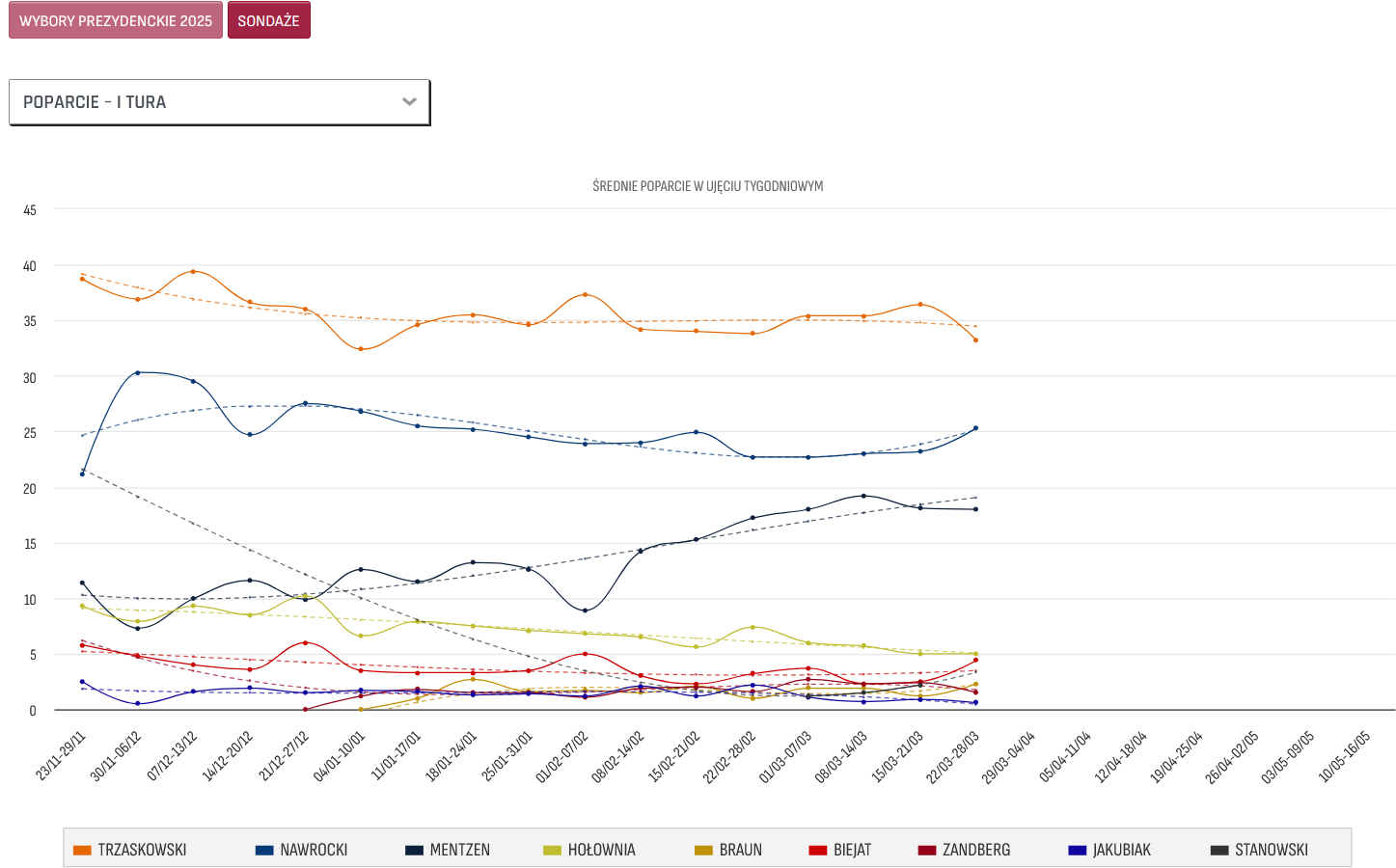
Weekly rolling average of support for candidates in Poland’s presidential election compiled by ewybory.eu
Interestingly, Mentzen now appears to be picking up the support of many voters who may have considered voting Confederation in the 2023 parliamentary election but plumped instead for the eclectic Third Way (Trzecia Droga) electoral alliance.
This comprises the agrarian-centrist Polish People’s Party (PSL) and liberal-centrist Poland 2050 (Polska 2050) grouping formed to capitalise on TV personality-turned-politician Szymon Hołownia’s strong third place in the 2020 presidential election.
The Third Way pitched its own free-market ideas and hoovered up some of the younger, aspirational voters who were initially attracted to Confederation. Many of them now feel that the Third Way, which is one of PO’s junior coalition partners, has failed to deliver on the fiscal policy issues that most concern these voters and this time Hołownia is struggling to secure more than 5% support.
Mentzen should also find it easier to hold on to these voters now that Confederation’s more extreme leaders such as Braun have been pushed aside.
Peaking too early?
Mentzen’s poll surge has put particular pressure on Nawrocki as the gap between them has narrowed and speculation has mounted as to whether the Confederation candidate can make it into a second-round run-off with Trzaskowski.
However, although Mentzen clearly has momentum, that most precious of political commodities, sceptics argue that he may have peaked too soon. The fact that his support is drawn disproportionately from younger Poles, a demographic that is very fickle and typically much less likely to actually turn out and vote, means that his electoral base is fragile.
Polling continues to suggest that, after his rapid rise in recent weeks, far-right presidential candidate Mentzen may have now reached the ceiling of his possible support and that it is below the floor of PiS candidate Nowracki's support https://t.co/tEQwtzLHRv pic.twitter.com/pVYrp8M14H
— Daniel Tilles (@danieltilles1) March 25, 2025
Nawrocki’s support, on the other hand, may be underestimated because large numbers of PiS voters still do not identify with him as the party’s candidate, and if they did, its core electorate is sufficiently large to ensure that he finishes at least second.
Mentzen is also likely to come under much more intense media scrutiny and has been a much weaker performer in TV interviews and debates than on social media.
As noted above, in the run-up to the 2023 election, Confederation also saw a surge before declining in the final weeks of the campaign. However, this time Mentzen’s campaign appears to be built on more solid foundations. He is not a “new” candidate who came from nowhere but a well-known politician with experience from several election campaigns behind him.
Second-round scenarios
How would Mentzen’s supporters vote in a second-round run-off? In the 2020 election, Bosak’s first round voters were divided evenly between Duda and Trzaskowski.
However, polling suggests that this time Mentzen’s voters are more likely to support Nawrocki. PO is now the incumbent (and increasingly unpopular) government, so more unambiguously representing the status quo and ruling political establishment.
At the same time, the electoral salience of moral-cultural issues such as abortion, where the views of Confederation’s younger voters are closer to Trzaskowski’s, has declined. Indeed, without openly endorsing Nawrocki, Confederation leaders have said that the grouping will do everything to stop Trzaskowski becoming president.
Rafał @Trzaskowski_, the presidential candidate of Poland's main ruling party, says his priority would be to sign bills on access to contraception, recognising Silesian language, and the constitutional court blocked by incumbent President @AndrzejDuda https://t.co/hEEKkmlf9E
— Notes from Poland 🇵🇱 (@notesfrompoland) March 15, 2025
It is difficult to tell how Mentzen would perform if he were to make the second round run-off. Many commentators assume that Trzaskowski would find it easier to beat him as the Confederation candidate is perceived as more extreme.
Mentzen’s opponents will no doubt try to discredit him by arguing that his strong socially conservative views on moral-cultural issues such as abortion diverge from those of his electoral base among younger Poles.
They are already reminding voters that, when Confederation first contested elections in 2019, Mentzen allegedly summed up the grouping’s five-point policy programme as: “We don’t want Jews, homosexuals, abortion, taxes and the EU.” Confederation politicians argue that he was simply presenting a theoretical example of what polling suggested the party’s voters wanted and not his own views.
In fact, for most of his voters, it is Mentzen’s free-market economic policies rather than conservative social values that are his main selling point. Although they have quite socially liberal views, Mentzen’s voters often see the “cancel culture” that they associate with the “woke” left as a greater threat to their personal freedoms than the religious right.
The end of the dominant duopoly?
In fact, presidential polls have always been the most unpredictable Polish elections and polling suggests that Mentzen has as much chance of winning a run-off as Nawrocki.
Indeed, although Nawrocki remains favourite to make the second round, in some ways Mentzen is actually better placed to channel the sizeable popular discontent with the Tusk government because he does not have the baggage of association with the previous, also unpopular, PiS administration.
Indeed, if Mentzen can finish ahead of Nawrocki, this would be a very significant challenge to, and possibly even herald the decomposition of, the PO-PiS duopoly that has dominated Polish politics for the last two decades.
Polls conducted to mark one year since @donaldtusk took power show that most Poles negatively assess the work of his government so far and many more feel their lives have got worse than better.
Women and young people are particularly disappointed https://t.co/QWZWvbyQbW
— Notes from Poland 🇵🇱 (@notesfrompoland) December 13, 2024

Notes from Poland is run by a small editorial team and published by an independent, non-profit foundation that is funded through donations from our readers. We cannot do what we do without your support.
Main image credit: włodi/Flickr (under CC BY-SA 2.0)
